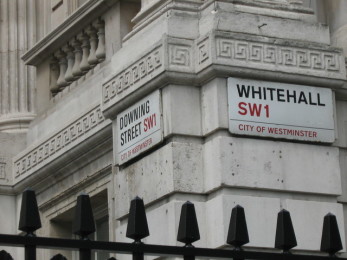 IR35 policy changes have effectively banned SMEs from working with government, according to Brightman director Romy Hughes.
IR35 policy changes have effectively banned SMEs from working with government, according to Brightman director Romy Hughes.
Hughes said that before 6 April 2022, Brightman was in trouble when a government agency and long term client instigated a blanket ban on working with SMEs due to their fear of IR35 enforcement action by HMRC. They were unable to approve budgets with any SMEs in their supply chain, despite these companies already being engaged in extensive, multi-year digital transformation activities.
The client did not want to terminate these contracts and the sudden termination of these projects would have been disastrous for both the organisation and its broader transformation ambitions. The whole scenario made no sense to anyone, but was being promoted from those further up the chain due to fears of making an error in their IR35 determinations.
“This was not an isolated incident, but a broader issue affecting many other public sector organisations and the professionals that work in them. It was an unofficial change of government policy, with significant ramifications for the sector and everyone it served (i.e., every taxpayer and recipient of public services)”, Hughes said.
She said that the customer secured an exception for us so that our critical projects could continue into the new financial year. But other projects were not so lucky.
” We were lucky enough to have a pre-existing relationship with a customer who was willing to fight for us, but the policy of banning small firms out of IR35 fears leaves no room for new SMEs to engage with the public sector in the future”, Hughes said.
IR35 legislation was first introduced to tackle the issue of tax avoidance within the limited company contractor community. Initially, it was the responsibility of contractors themselves to determine whether they sat inside or outside of IR35, and would therefore be taxed as employees (in IR35) or off-payroll workers (outside of IR35).
Recently legislation changed so that the responsibility for IR35 determination now lies with the organisation receiving the services of the contractor, rather than the contractor themselves. This meant that the organisation was now responsible for any taxes that should have been paid by their contractors if they were later deemed to have been operating within IR35. This change has already been very costly to some, with The Home Office, Ministry of Justice and Defra all having been hit with a combined tax bill for IR35 non-compliance totalling nearly £200 million in the last year alone.
This new – and unofficial – policy change from April 2022 effectively places a blanket ban on SMEs working with the public sector.
“I believe it is the direct result of HMRC’s recent aggressive enforcement action. Organisations have responded with an over-cautious approach whereby it is simpler to just assume every supplier sits within IR35 instead of taking the risk of making an incorrect assessment”, Hughes said.





